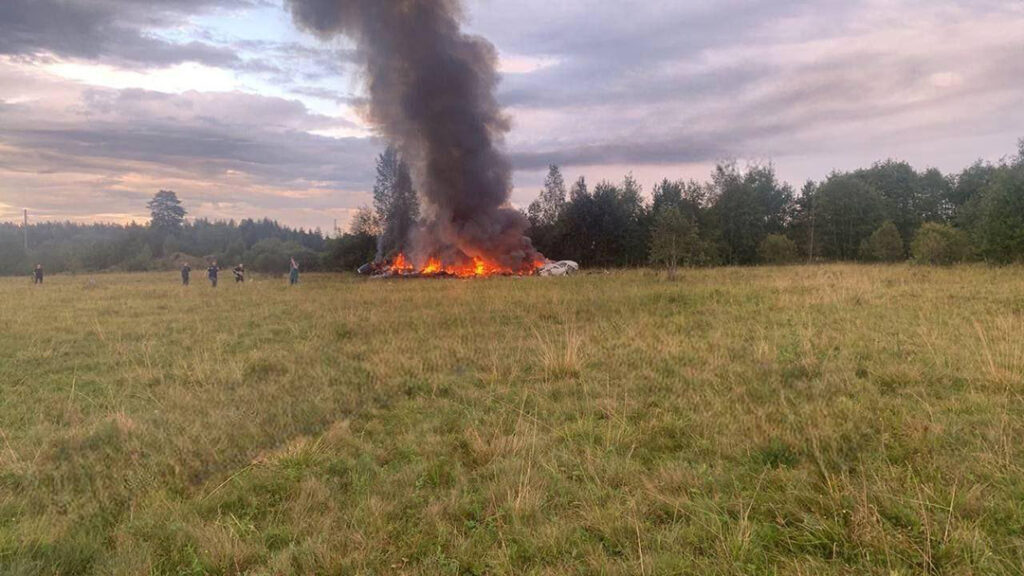ADF STAFF
Yevgeny Prigozhin built a violent and profitable mercenary network over the past five years in the Central African Republic (CAR), Libya, Mali and Sudan. His last days before his death in a plane crash on August 23 were spent in Africa trying to expand his reach.
Now, leaders in the countries where his mercenary forces operate are left asking “what’s next?”
Dr. Edgar Githua, a lecturer at Strathmore University who studies international relations, peace and conflict, said that Prigozhin’s death surely will deal a blow to the group’s finances and its influence.
“Prigozhin is the one who had the financial streams of the Wagner Group,” Githua told Voice of America. “He’s the one with the international connections. He’s the one who was getting all the international contracts.
“It was a one-man show. Prigozhin had a lot of power and a lot of say within that group. With his demise, that group is going to find itself rudderless for some time.”
Experts believe the Kremlin likely will place the mercenaries under new leadership to maintain Wagner’s military, security, mining and other business relationships in Africa.
But Prigozhin’s death has raised questions about the future of his private army.
Cameron Hudson, a senior associate at the Center for Strategic and International Studies’ Africa Program, said the Wagner Group gave Moscow an inexpensive influence machine with plausible deniability.
“The idea of a Wagner-like entity, which is to say a private military company that allowed Russia to have unofficial but very impactful results on the continent, is too valuable to just have it go away,” he told Bloomberg News.
Now, the key question is whether the Russian military will take over Wagner.
“That would mean the end of Wagner as we know it,” BBC Monitoring’s Russia editor Vitaly Shevchenko said during the Africa Today podcast. “That’s the Kremlin’s intention. I think it’s realized now that once you nurture this brutal monster, it can get out of control.
“And now the Kremlin is trying to put this genie back into the bottle, as it were, at the expense of Wagner.”
Not only is Russia’s presence in Africa in disarray, but its foreign policy amounts to propping up dictators and military rulers while its invasion of Ukraine has diverted significant resources and attention away from African countries.
Joseph Siegle, director of research at the Africa Center for Strategic Studies, said Russia’s use of mercenaries and its expected takeover of the Wagner Group has laid bare its intentions in Africa.
“It aims to secure a foothold in North Africa and the Red Sea, normalize authoritarianism and displace the United Nations-based international system,” he wrote for The Conversation Africa website in a September 4 article.
“None of these objectives are about making Africa more prosperous or stable. Rather, the continent is primarily a theatre to advance Russia’s geostrategic interests.”
That includes stripping countries of gold, diamonds and other natural resources.
In the CAR, Wagner owns the country’s biggest gold mine, which can produce as much as $290 million worth of ore a year. It’s just one of many business interests that Prigozhin’s mercenaries developed to the detriment of citizens.
Rights groups and the U.N. have reported extensively on Wagner atrocities such as massacres, summary executions, rape, torture and looting in CAR and Mali — the two African countries with the largest and most formal Russian partnerships.
“There’s a lot of noise around the death of one person [Prigozhin],” former CAR Prime Minister Martin Ziguele told Bloomberg News. “I find this vulgar compared to the number of Central Africans who have lost their lives in Wagner operations in my country, atrocities that have been documented in numerous reports.”
For African leaders looking to Russia and its mercenaries for support, Prigozhin’s chaotic life and death could be a warning sign.
“Putin speaks often of his desire to create a new international order,” Siegle wrote. “Russia’s lawlessness at home and abroad is bringing into sharp focus what his world order would look like. And that’s not a vision many African leaders share.”

